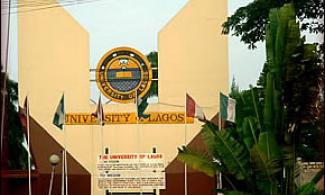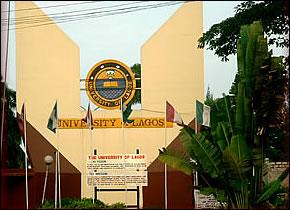
Students criticized the provisions as tantamount to "tying a bone round the neck of a dog". "If they are sincere enough about reinstating the Students Union, the Management should simply lift the ban and let us continue with the existing constitution," a group of students said today.
The University of Lagos (UNILAG) has set rolling a process to establish a new students' union which will be under full monitoring and influence of the management. The new union, called University of Lagos Students Union (ULSU), will by design serve as replacement for the Union that was banned in 2005.
The process to evolve the Union involves select students from various departments and some carefully handpicked staff members, the majority of whom have been instructed to play out preset agenda of some top officials in the management. Student representatives at various meetings put up to engender full birth of the Union said they have perceived plots by officials in the University Management to bring their affairs under full influence. The obvious aim of the vested interests, they have said, is to evolve a union which will be subjugated under management control.
After the management placed a ban on the union in 2005, a leader of the Union was said to have died under mysterious circumstances, immediately after a conversation with the Vice-Chancellor Prof. Ibidapo-Obe.
Since that time, efforts by all stakeholders, especially students and affiliate freedom-seeking interest groups to lift the ban have failed. Successive administrators had repressed calls for reinstatement by claiming students in the union had a tendency for violence, vandalism, and brigand displays.
Sustained pressures by students of various sessions from 2005 had eventually resulted in the formation of faculty-based associations in 2010. The associations in turn formed a central unit, which only comprised leaders of executives of various faculty associations.
The "Association of Faculty Presidents" had repeatedly been rebuffed by students, who rather insisted on the return of vibrant student unionism. Students further alleged that the faculty associations were merely a mouthpiece for the management, which had passed down several exploitative policies and imposition of levies on students without their objections.
Consequent upon the students' sustained agitations, the new Vice-Chancellor, Professor Rahman Bello, had approved the reintroduction of student unionism, with conditions.
"What they have proposed is not even a semblance of Unionism at all, but a caricature that will be mockery of genuine Unionism," one student said.
"What was expected is a lift of the ban placed on the existing Union, and then a re-adoption of what was, before the ban," he said further.
Most students said they had declined participation when invited at preliminary stage of the introduction process.
"I could perceive from its outset that it was not laced with genuine intent," said one student. "I vehemently rejected the suggestion".
Further, many lecturers, who were perceived to be disposed to independent and vibrant Unionism were excluded from the formation process.
"What confirms our fears most is the new draft constitution they are introducing", said the students.
Some said the students who were selected to participate in the Constitution Drafting Committee (CDC) were students who would accept virtually every point raised by management. They alleged that it was premeditated to manipulate their naivety.

Other education activism groups have decried what they termed as "foul" to effective and independent unionism. One of the groups is the Education Rights Campaign (ERC).
The group criticized completely the idea of drafting any new constitution at all. It pointed out that UNILAG only needed to restore the banned union with its existing constitution, which guaranteed independent students practice of unionism, free from manipulations or any form of external control.
But the new draft constitution cuts out key aspects that allow full functioning of an independent union. For instance, it only recognizes select few student executive members for voting.
In Article 6 (section 2) of the ULSU draft constitution, all matriculated students are recognized as Congress members by virtue of their statuses as students, however they are deprived of the right to vote - at all. The draft constitution instead limits voting rights to two class representatives and each president of a department with their secretaries alone. It in addition only recognizes five representatives from the Faculty of Law and Faculty of Pharmacy to also vote.
ERC then suggested; "As with all cases of proscriptions, a reversal should logically and legally mean the restoration of the status quo ante."
More injurious, the draft constitution cuts out the mass of students from choosing their executive representatives. Its method of election allows only 10% of the entire student population to vote to elect executive members of the Student Union. The 10% is further broken down to comprise 5% of select voters from each faculty depending on the faculty's population.
Students criticized the provisions as tantamount to "tying a bone round the neck of a dog". "If they are sincere enough about reinstating the students union, the management should simply lift the ban and let us continue with the existing constitution", a group of students said today.
They added; "You do not need a Berlin conference or draft a new constitution since there was one with full specifications of what unionism should be."
Sources privy to the inside workings of the management hinted to Saharareporters that the vested interests within the management are disposed to the imposition of a parliamentary system in order to ensure that management-compliant student candidates are perpetually sponsored to head the Union and be submissive to their commands.